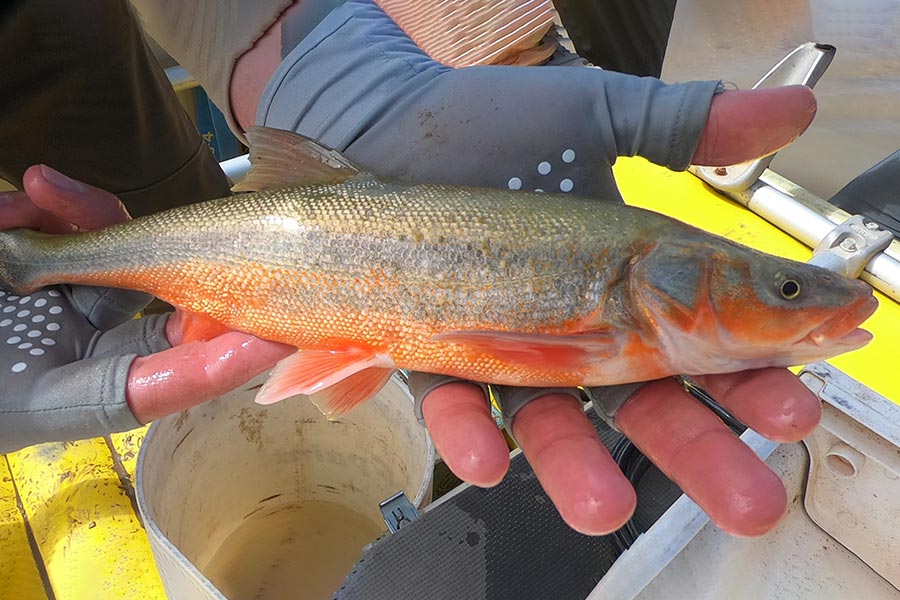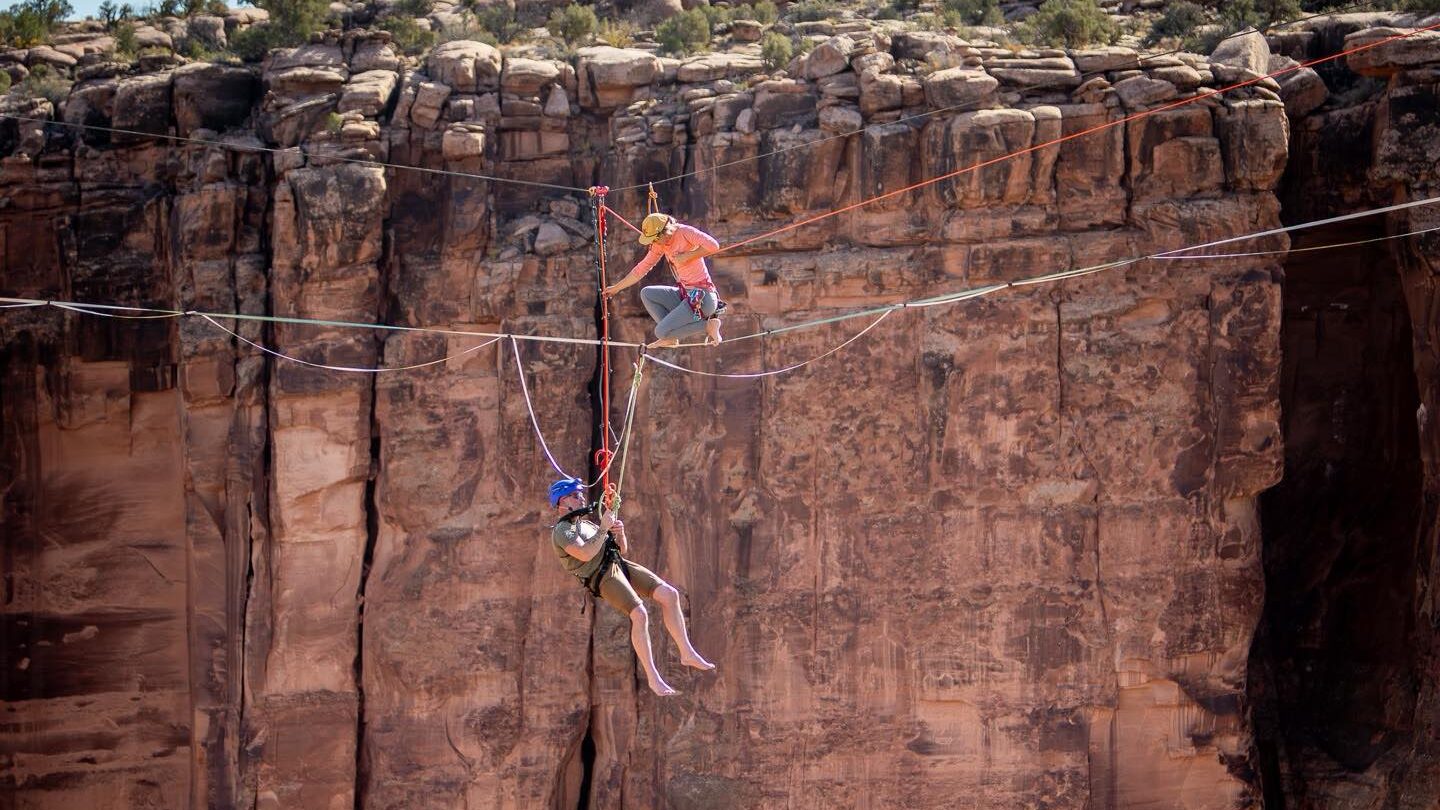Some information may be outdated.
As a native aquatic biologist for the Utah Division of Wildlife Resources, Tyler Arnold’s primary responsibility is to identify and create conservation plans for threatened species to keep the species off the endangered list.
One species he’s been focused on is the roundtail chub, a fish endemic to the Colorado River Basin. In Utah, the fish is listed as a sensitive species: according to Arnold, the main challenges the species faces are habitat loss from dams and water diversions and competition with invasive species.
Moab will soon play a key role in its conservation: Old City Park pond, once home to an out-of-control carp population, will act as a propagation pond for roundtail chub.
“We’re hoping that pond can be a source of fish for us,” Arnold said. “Roundtail chub have reduced their range by 70% at this point—if any catastrophic event happens to the range they’re in now, that last 30%, we could lose populations.”
But with efficient propagation ponds, those lost populations could be restocked back into the river, Arnold said.
The Old City Park pond project started last March when the city realized the carp population was threatening other species at the pond: the carp were feeding on ducklings and other small birds. The city reduced the pond’s water level, treated the water with Rotenone, a naturally occurring substance used in fisheries management, and removed the carp.
The chub will arrive in Moab sometime in late August, and then the DWR will monitor the fish to see how well they adapt to the pond. The fish are being taken from the Dolores River: Arnold’s crew will utilize a seine net, a type of mesh net that can stretch across the river and hang down vertically, to trap the fish. Then, they’ll catch the roundtail chub and ready them for transportation.
Even if the fish don’t propagate at a fast enough rate to utilize the pond for population re-stocking, Arnold said it’ll still be useful to teach Moabites and visitors about the importance of endemic Colorado Basin fish.
“They’re a piece of how the natural ecosystem evolved in this area,” he said. “And taking that piece out would affect how everything interacts with each other.”
Annie McVay, the parks, recreation, and trails director for the City of Moab, said this is the largest conservation project currently taking place at parks within city limits.
“Hopefully in the future, we can do a little more to improve the pond’s aesthetic and integrate it into the park more,” she said. “But this is a great first step.”
Appreciate the coverage? Help keep local news alive.
Chip in to support the Moab Sun News.





